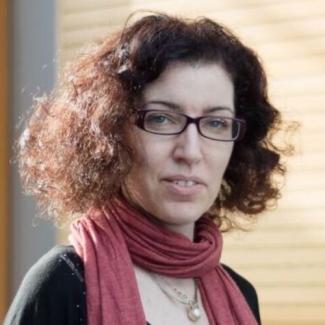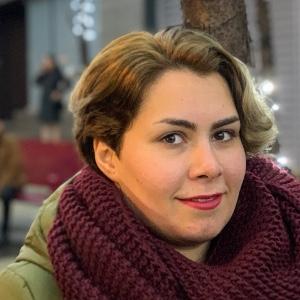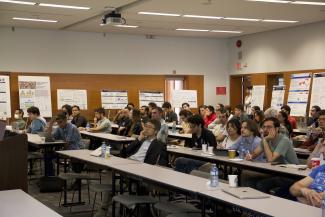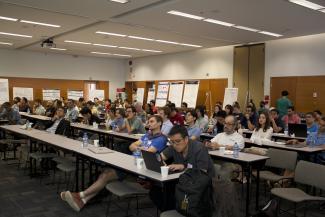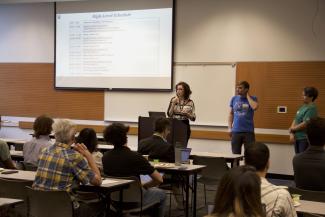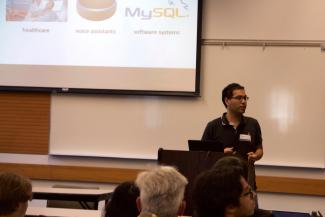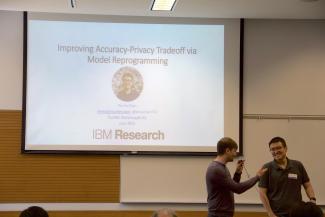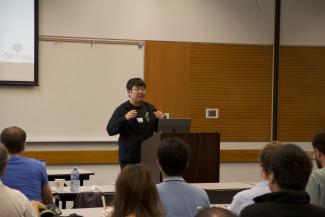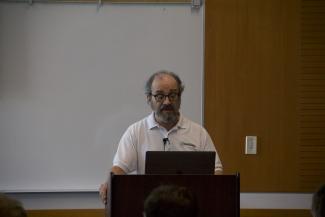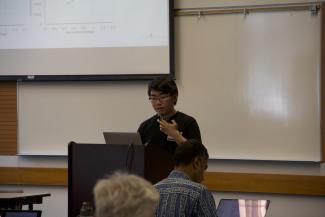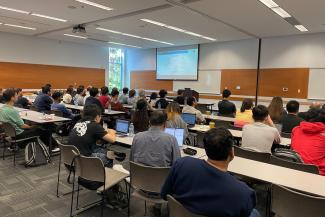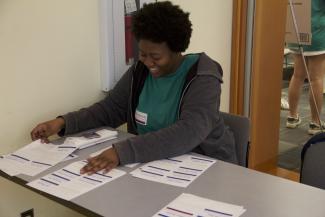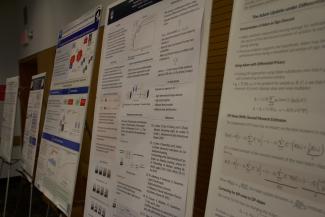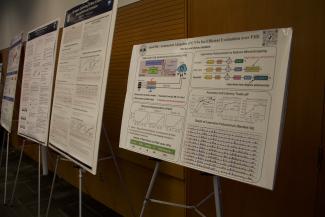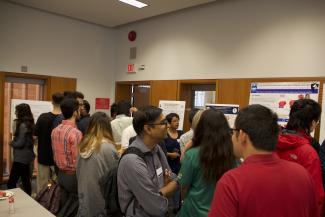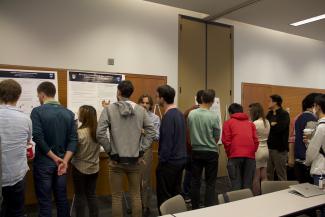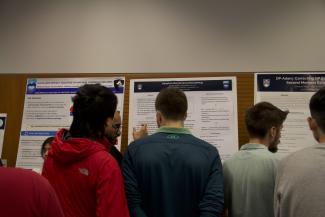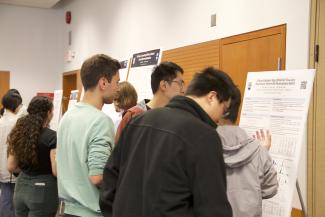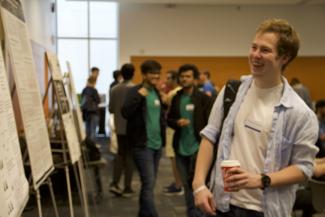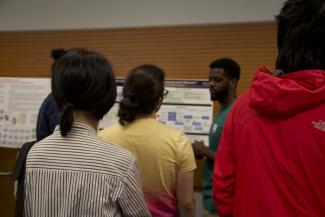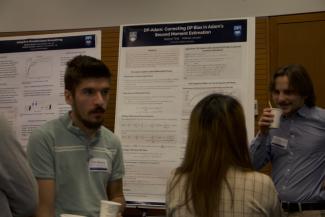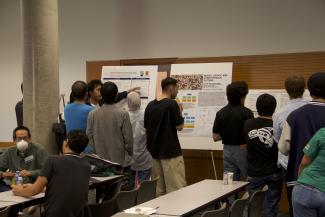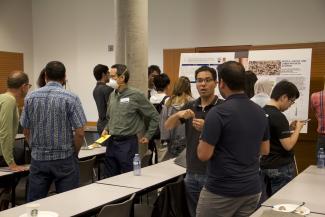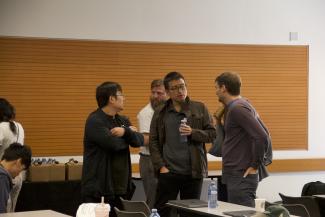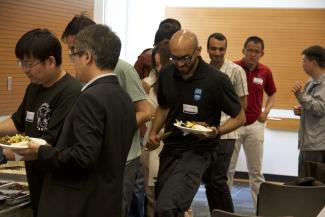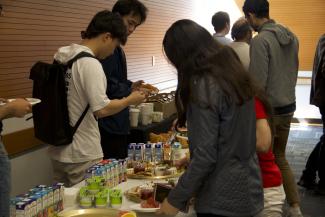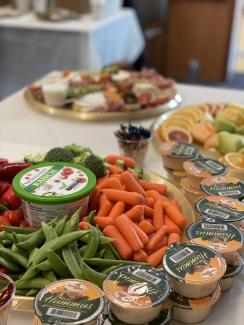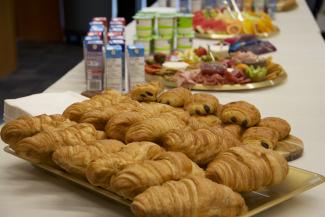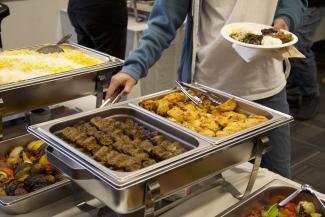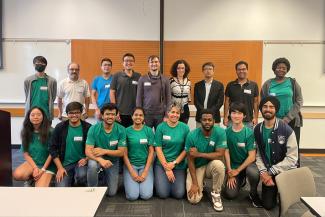TrustML Workshop @ UBC, June 2023
June 23, 2023, 9:00 am to 6:00 pm
Overview Speakers Call for Briefings/Posters Program Organizers
Overview
The TrustML Workshop @ UBC brings together leading researchers and practitioners interested in building trustworthy machine learning systems: systems that are reliable, secure, explainable, and ethical. The workshop will feature invited talks, tech briefings, poster sessions, and other opportunities to discuss your work and foster connections that strengthen our vibrant research community in the area.
Location: KAIS-Rm.2020/2030, 2332 Main Mall, UBC Vancouver campus
For your convenience, the nearest parkade is the UBC Health Sciences Parkade. You can find directions here: https://goo.gl/maps/k8X8mdnVLk5u3gEt5
Register Now
Speakers
Call for Tech Briefings and Posters
The TrustML Workshop @ UBC is accepting technical briefing submissions, for 10 to 15 minute talks, as well as poster submissions. To submit a briefing, a poster, or both, please fill out the form below and include a title and a short description of your work. The submissions will be evaluated based on their relevance to the workshop theme. Don't miss the chance to showcase your research and connect with like-minded individuals at the TrustML Workshop @ UBC!
Important Dates:Submission deadline: June 9, 2023Acceptance notifications: June 13, 2023
Submit Your Briefing/Poster Proposal Today
Accepted Briefings

Vishnu Boddeti Michigan State University |

Abraham Chan The University of British Columbia. |
Sheng-Yen Chou The Chinese University of Hong Kong |

Sathish Gopalakrishnan The University of British Columbia |
| |

Lei Hsiung Dartmouth College |
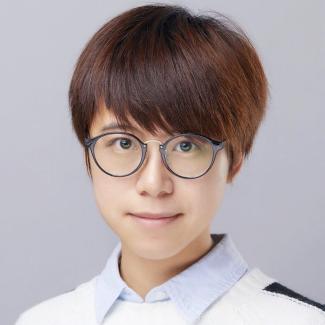
Xiaoxiao Li The University of British Columbia |
Lina Marsso University of Toronto |
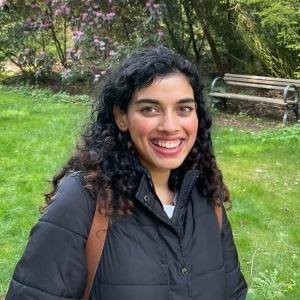
Harshinee Sriram The University of British Columbia |
Workshop Program
*Pacific Standard Time (US & Canada)
Time | Session |
| 9:00-9:40 | Welcome, Breakfast, and Mingling |
9:40-11:00 | Session 1 (Chair: Julia Rubin)Osbert Bastani, University of Pennsylvania: "Specifying Machine Learning Components with Conformal Prediction" Bo Li, University of Illinois at Urbana-Champaign: "Certifiably Robust Learning via Knowledge-Enabled Logical Reasoning" |
| 11:00-11:30 | Break, Posters |
11:30-12:50 | Session 2 (Chair: Mathias Lécuyer)Pin-Yu Chen, IBM Research: "Improving Accuracy-Privacy Tradeoff via Model Reprogramming" Sijia Liu, Michigan State University: "Empowering Machine Unlearning through Model Sparsity" |
| 12:50-14:00 | Lunch, Posters |
14:00-14:40
14:40-15:20 | Session 3 (Chair: Xiaoxiao Li)Tech Briefings: Lei Hsiung, Dartmouth College: "Building Trustworthy Systems: Compositional Adversarial Robustness and Low-Voltage Inference" Vishnu Boddeti, Michigan State University: "AutoFHE: Automated Adaption of CNNs for Efficient Evaluation over FHE" Sathish Gopalakrishnan, The University of British Columbia: "People, Justice and Cyber-Physical Systems" Lina Marsso, University of Toronto: "Verification for Autonomous Driving using Formally Derived Driving Scenarios" Harshinee Sriram, The University of British Columbia: "Evaluating the Overall Sensitivity of Saliency-based Explanation Methods" Brian Fisher, Simon Fraser University: "Interactive Visualization to Externalize, Explore, and Explain Trust in ML" |
| 15:20-16:00 | Break, Posters |
16:00-16:25
16:25-17:45 | Session 4 (Chair: Mathias Lécuyer)Tech Briefings Xiaoxiao Li, The University of British Columbia: "Overcoming Data Heterogeneity Challenges in Federated Learning" Sheng-Yen Chou, The Chinese University of Hong Kong: "BadDiffusion: How to Backdoor Diffusion Models?" Abraham Chan, The University of British Columbia: "Building Resilient Ensembles against Faulty Training Data" Neil Gong, Duke University: "Big Security Issues of Big Foundation Models" Yisen Wang, Peking University: "Model Components Matter in Trustworthy Machine Learning" |
| 17:45-18:00 | Summary and Closing |
Accepted Posters
- Vishnu Boddeti, Michigan State University: "AutoFHE: Automated Adaption of CNNs for Efficient Evaluation over FHE"
- Sheng-Yen Chou, The Chinese University of Hong Kong: "BadDiffusion: How to Backdoor Diffusion Models?"
- Wenlong Deng, The University of British Columbia: "On Fairness of Medical Image Classification with Multiple Sensitive Attributes via Learning Orthogonal Representations"
- Sathish Gopalakrishnan, The University of British Columbia: "People, Justice and Cyber-Physical Systems"
- Lei Hsiung, Dartmouth College: "Building Trustworthy Systems: Compositional Adversarial Robustness and Low-Voltage Inference"
- Mishaal Kazmi, The University of British Columbia: "Efficient Black-box Privacy Testing of Machine Learning Pipelines"
- Lina Marsso, University of Toronto: "Verification for Autonomous Driving using Formally Derived Driving Scenarios"
- Gargi Mitra, The University of British Columbia: "AI/ML-enabled Connected Healthcare Systems: New Remedies or New Risks?"
- Jiayang Ren, The University of British Columbia: "A Scalable Near-Optimal Moving-Horizon Algorithm for Classification Trees"
- Shadab Shaikh, The University of British Columbia: "Adaptive Randomized Smoothing"
- Harshinee Sriram, The University of British Columbia: "Evaluating the Overall Sensitivity of Saliency-based Explanation Methods"
- Qiaoyue Tang, The University of British Columbia: "DP-AdamBC: your DP-Adam is actually DP-SGD (unless you apply Bias Correction)"
- Michael Tegegn, The University of British Columbia: "Can Large Language Models for Code Detect Android Malware?"
- Vala Vakilian, The University of British Columbia: "On the Implicit Geometry of Cross-Entropy Parameterizations for Label-Imbalanced Data"
- Yixiu Wang, The University of British Columbia: "A Near-Optimal Algorithm for Training Regression Trees with Hyperplane Splits"
- Gabby Xiong, The University of British Columbia: "It Is All About Data: The Effects of Data on Adversarial Robustness"







